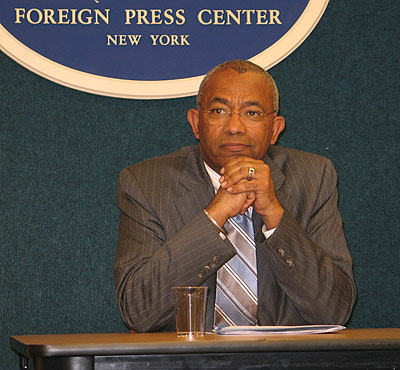
The Educational Testing Services (ETS), one of the world's leading testing and educational research organizations, announced that it would increase the role of its TOEIC (Test of English for International Communication) test in China this year. This announcement was made during a briefing on March 29.
According to ETS, in 2006, more than 4.4 million people around the world took the TOEIC, the world's most widely used test that measures English proficiency of nonnative English-speaking people in a professional work environment.
But the number of TOEIC test taker in China is rather small, said Paul Ramsey, Senior Vice President of the ETS Global Division. According to Ramsay, since the TOEIC test was introduced to China in late 2002, only 30,000 people have taken the exam.
"I think we have not been successfully introducing TOEIC in China," Ramsey admitted. He said that one of ETS' goals for this year is to "grow TOEIC significantly in China."
According to Xiaoming Xi, a research scientist in ETS' Research & Development Division, China has limited the test taker of the CET (College English Test), a test that was widely recognized among Chinese and foreign companies in China.
No certificates were issued for the College English Test (CET) in 2005. The move was one of the reform measures implemented by the Ministry of Education to improve the CET as it was frequently criticized after many cases of cheating had come to light recently. "I think this will help TOEIC grow its market in China," she said.
Different from TOEFL which is a test of academic English proficiency, TOEIC aims to assess everyday English skills of nonnative English speakers in an international workplace. It is most popular in Japan and Korea, where the pilot TOEIC test was first introduced in May 2006.
(Reporting from New York)
| 